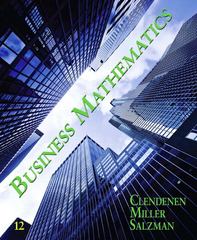Question
Covered interest arbitrage problem: Example: suppose yen-dominated interest rate is 2% $-dominated interest rate is 6% current ($/yen) exchange rate is 0.009 The theoretical 1-year
Covered interest arbitrage problem:
Example: suppose
yen-dominated interest rate is 2%
$-dominated interest rate is 6%
current ($/yen) exchange rate is 0.009
The theoretical 1-year forward exchange rate is 0.009e^(6%-2%) = 0.009367
However, suppose the observed 1 - year forward exchange is 0.0093, then, the professor claims that in this case, the interest rate of dollars might be too high(therefore we will lend out $) or the interest rate of yen might be too low(therefore we will borrow yen) to do the arbitrage. But shouldn't be the interest rate of dollars to be too low or the interest rate of yen be too high and that's why the observed exchange rate to be lowered than 0.009367 e.g. 0.009e^(5.5%-2.3%) < 0.009367? Please help me to undertstand the mechanism from the formula's perspective, thank you very much.
Step by Step Solution
There are 3 Steps involved in it
Step: 1

Get Instant Access to Expert-Tailored Solutions
See step-by-step solutions with expert insights and AI powered tools for academic success
Step: 2

Step: 3

Ace Your Homework with AI
Get the answers you need in no time with our AI-driven, step-by-step assistance
Get Started


